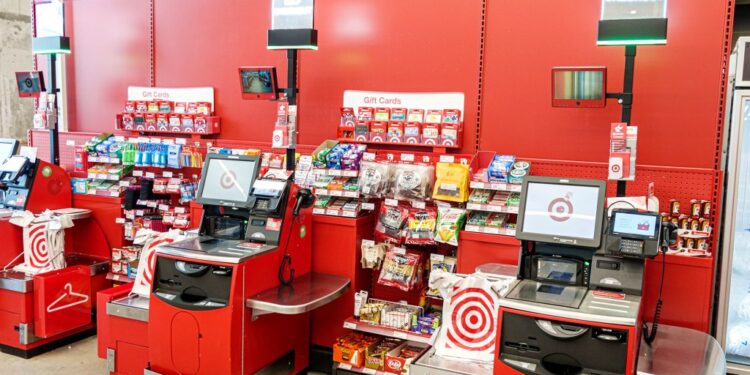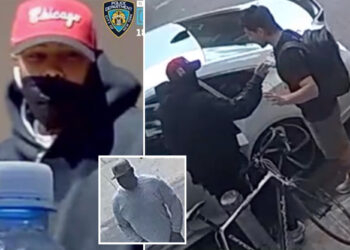Retailers in crime-riddled San Francisco are abandoning their self-checkout lanes in a “defensive retailing” move to counter surging thefts in the city.
A Safeway supermarket in San Francisco’s Fillmore District and a Target on Mission Street closed their self-checkout kiosks to customers — a change that other stores across the troubled city may follow, SFGate reported.
“While I can’t speak for any one company, you see the trajectory of commerce over the last 10, 20, 5,000 years, it’s all about reducing friction for customers,” Daniel Conway, vice president of government relations for the California Grocers Association, told the outlet.
“But now you’re seeing a countervailing trend: armed guards and Tide Pods locked up,” he added.
Retail thefts and organized “smash-and-grab” robberies in the Golden Gate City — and major cities across the country — have skyrocketed in recent years, forcing many major stores to shut down certain locations.

Target blamed crime for shutting down three stores in San Francisco in September, according to SFGate. In 2021, Safeway said rampant thefts forced a city location to cut employees’ hours.
The Post has reached out to Target and Safeway for comment about the removal of the self-checkout machines as many retailers have linked the do-it-yourself kiosks to rising thefts.
There have been 29,739 cases of larceny and theft in 2023 — significantly down from 2022 when 61,715 were reported, according to the latest data from the San Francisco Police Department,

California announced in September it plans to spend $267 million to help dozens of local law enforcement agencies crack down on smash-and-grab robberies. Gov. Gavin Newsom’s office said at the time that since 2019, law enforcement in California has arrested more than 1,250 people and recovered $30.7 million in stolen merchandise.
In New York, store owners said they lost $4.4 billion last year as a result of retail theft, according to the The Retail Council of New York State, a lobbying group.
Retailers in other cities such as Chicago and Minneapolis, have also been targeted by large-scale thefts when groups of people show up in groups for mass shoplifting events or to enter stores and smash and grab from display cases.
In response, retailers have had to adapt, which may wind up making shopping ultimately more difficult, Conway told SFGate.
“All the things put in place to reduce friction are now being put back,” Conway said. “I can buy whatever I want on my phone, but now when I want to go to a store to buy it, it’s harder.
“It’s difficult to make a direct correlation, but I think in San Francisco it’s getting to the point that you are seeing stores closing, which is the ultimate form of defensive retailing,” she said.



























